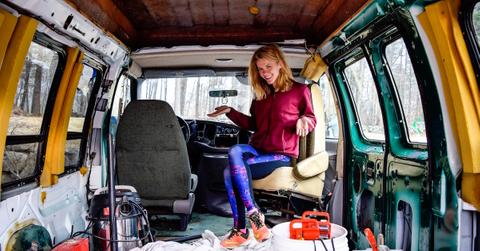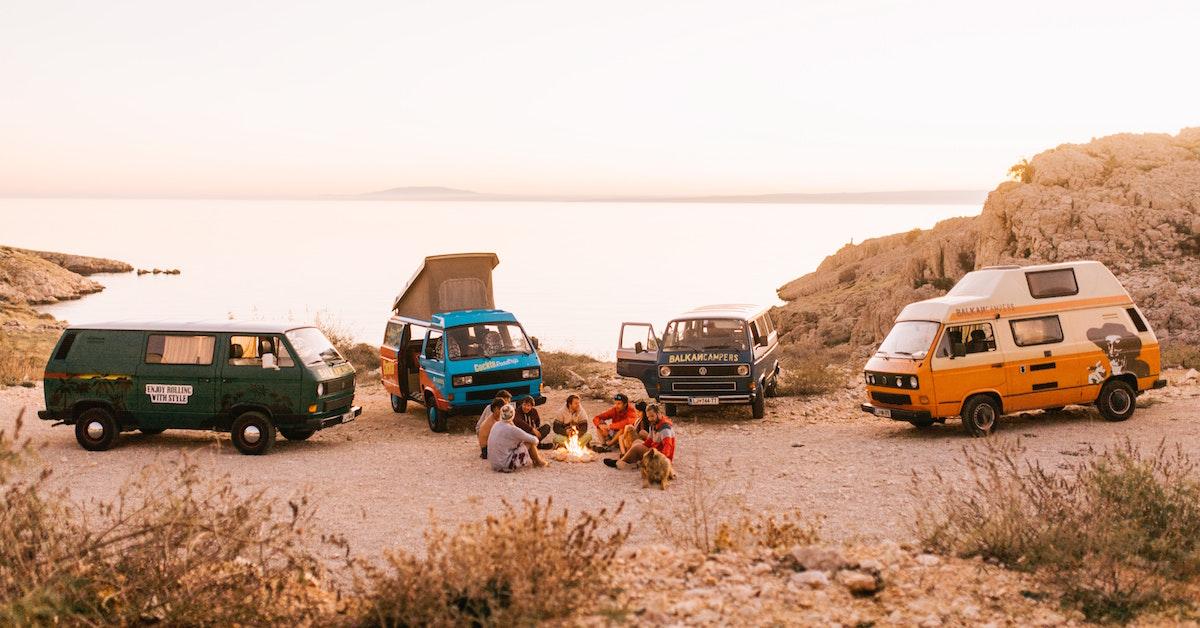For Vanlifers, Life on the Road Can Be Lucrative and Rewarding
Published Sept. 28 2021, 1:04 p.m. ET

Vanlife has become increasingly popular in recent years. There’s something liberating about eschewing life’s complications and choosing a life of freedom and detachment. In many ways, vanlifers are modern day nomads, moving from place to place on their own steam and on their own dime. But how do vanlifers make money living such a life, and how can such a transient lifestyle be lucrative enough to even survive in today’s economy?
What is vanlife?
Van living, or van dwelling as it's sometimes called, is basically tiny-house living for those who don’t want to be tied down to a single space or community. Vanlifers live out of their automobiles, which are usually kitted-out vans that hold only what the van dweller needs to survive. It’s a fascinating lifestyle that harkens back to a bygone era. According to Project Van Life, vanlifers choose this existence for many reasons.
Perhaps they want to simplify their life or minimize their environmental impact. They might just love to travel and wish to do so unfettered by the constraints of real estate or municipal regulation. Despite the limited space and amenities, van living allows one to take control of one’s own life. There’s also something very poetic about living on the open road, which may account for the recent popularity of van living.

How do vanlifers make money?
Contrary to popular belief, there are a number of ways that vanlifers can make money whilst traveling. Many vanlifers are seasonal workers, living outside or on the premises of summer camps in the warmer months and traveling to work in ski resorts at the first sign of the snow. Some also do farm work during harvest time or work as park rangers, according to Gnomad Home.
Then there are folks who work remotely for a living, such as writers, reporters, photographers, designers, and web developers. They can do their jobs from anywhere, provided they have an internet connection, making vanlife a viable option. If you’re artistic or crafty, you might earn your living making jewelry, art, or clothing. If you are possessed of musical talent, you could perform gigs or play with bands in different locations as you travel.

You might be a good cook or barista, which means you could sell food, coffee, kombucha, or other beverages from the back of a well-equipped van or attached food truck trailer.
Ever hear the old adage, “one man's trash is another man's treasure”? You could become your own brand of American Picker, buying, bartering, and reselling antiques and unwanted items you cull from sidewalks or through dumpster diving. On the reverse side of this, are vanlifers who are quite well-off, career-wise, folks like circus performers, or MLB pitcher Daniel Norris, who lives in his van during the offseason.
There’s also the service industry. Maybe you're a masseuse, a reiki practitioner, or naturopathic healer. Perhaps you have a background in physical therapy, yoga instruction, or personal training. Turn those skills toward teaching others in the communities you visit.

Are vanlifers considered homeless?
In some circles, the idea of choosing a vanlife is seen as willfully choosing homelessness. However, it’s important to realize that there is a big difference between people who make the conscious choice to live in their van and travel the world, and those who are forced to do so due to economic circumstances outside their control. There is some gray area here, of course, but most of the time, the difference is in the choice itself.
According to Homeless Voice, those who choose the vanlife purposefully and painstakingly turn their vans into mobile homes. These homes aren’t just your dad’s old Honda, they are unique, sometimes expensive tiny homes with specialized heating or cooling systems, sleep compartments, storage space, and often, waste removal systems, and food preparation equipment.
Nevertheless, vanlifers do face similar challenges to people without reliable shelter, in terms of where they can park their vans, how those homes are viewed in the communities they visit, and the economic struggle that can arise when living a transient lifestyle. Though, as you can see, vocational options abound, even for a vanlifer.